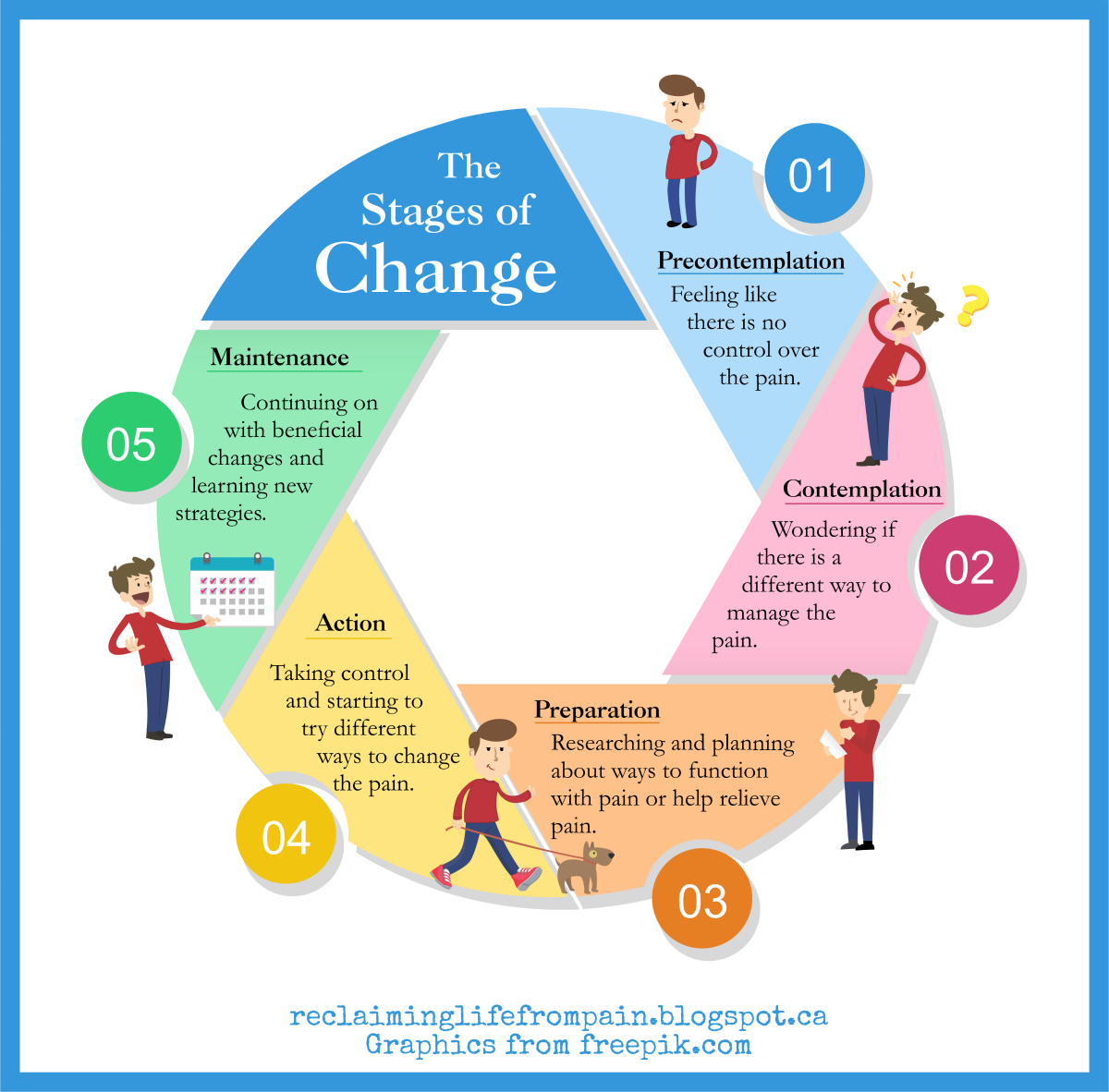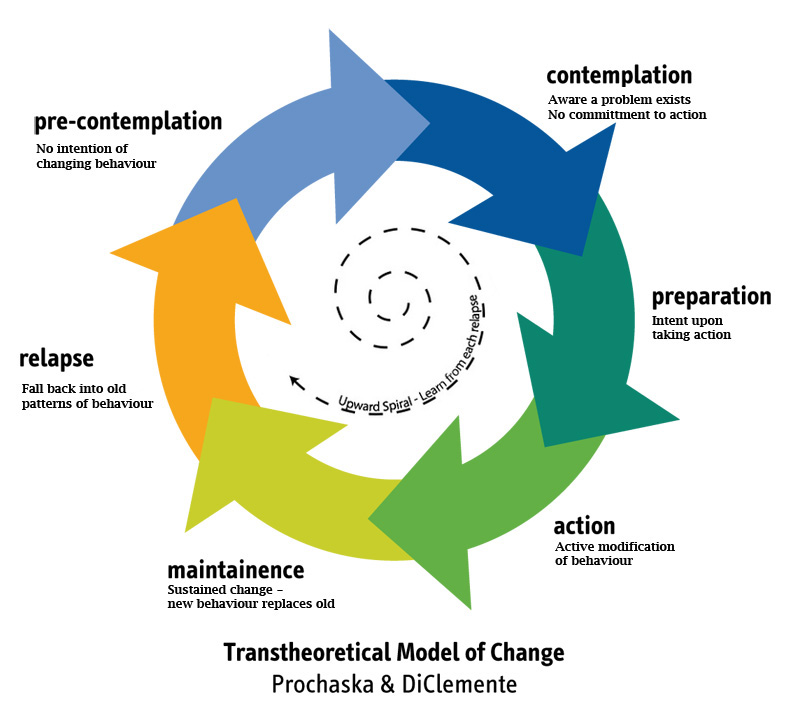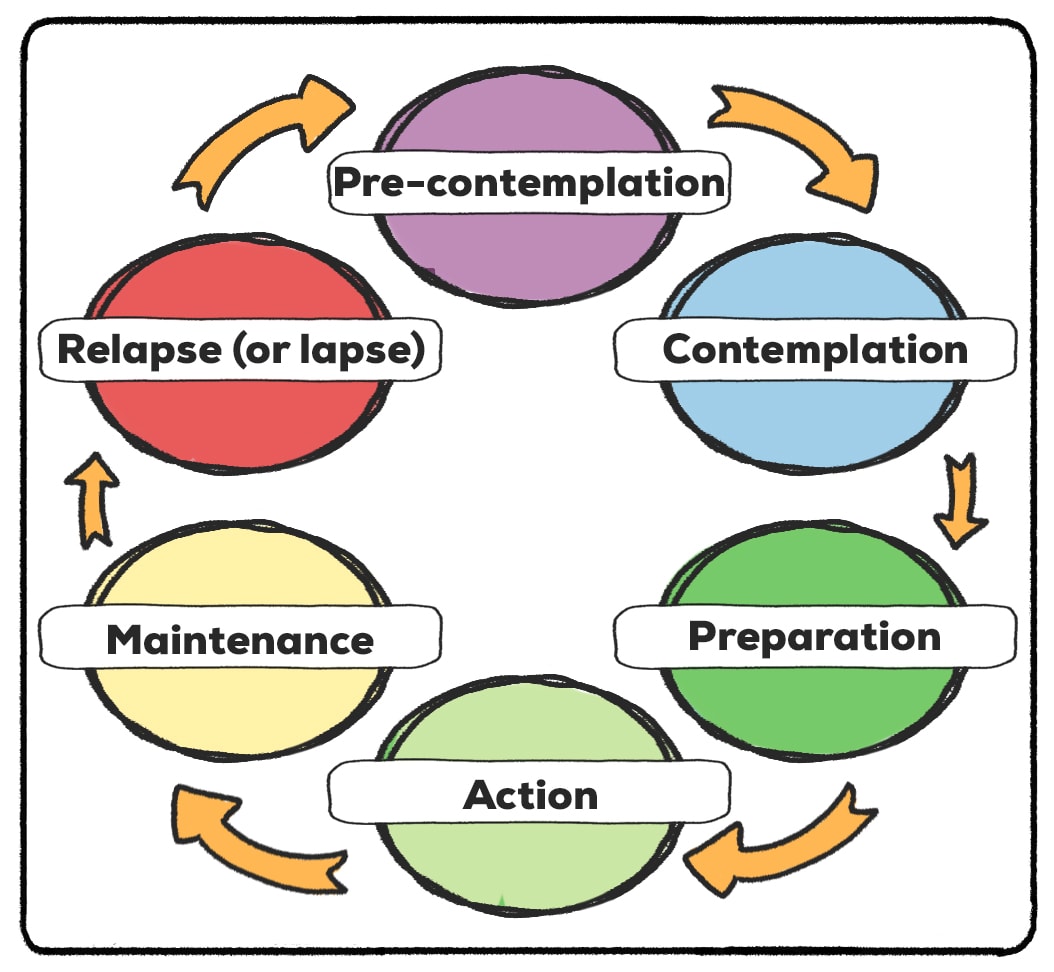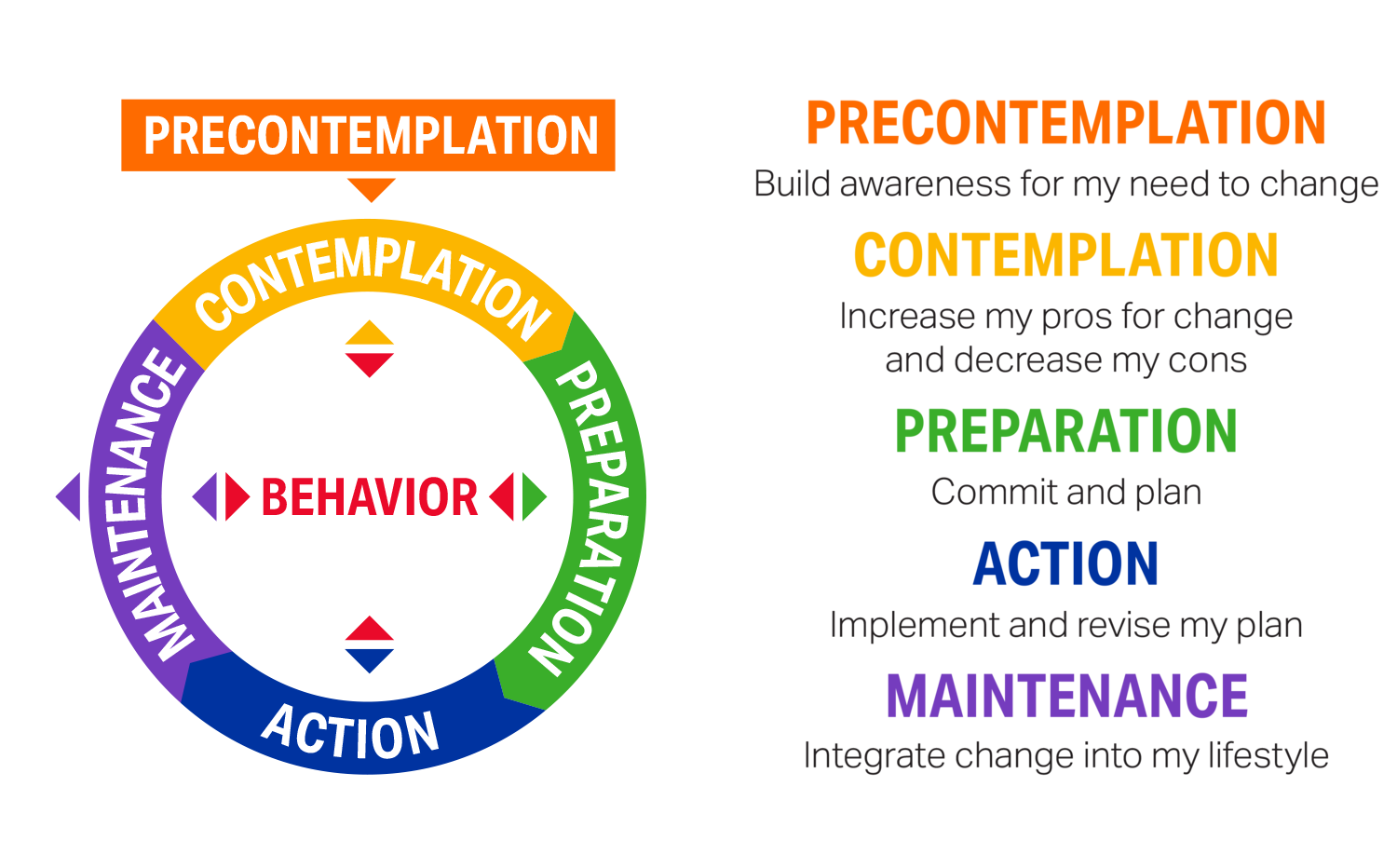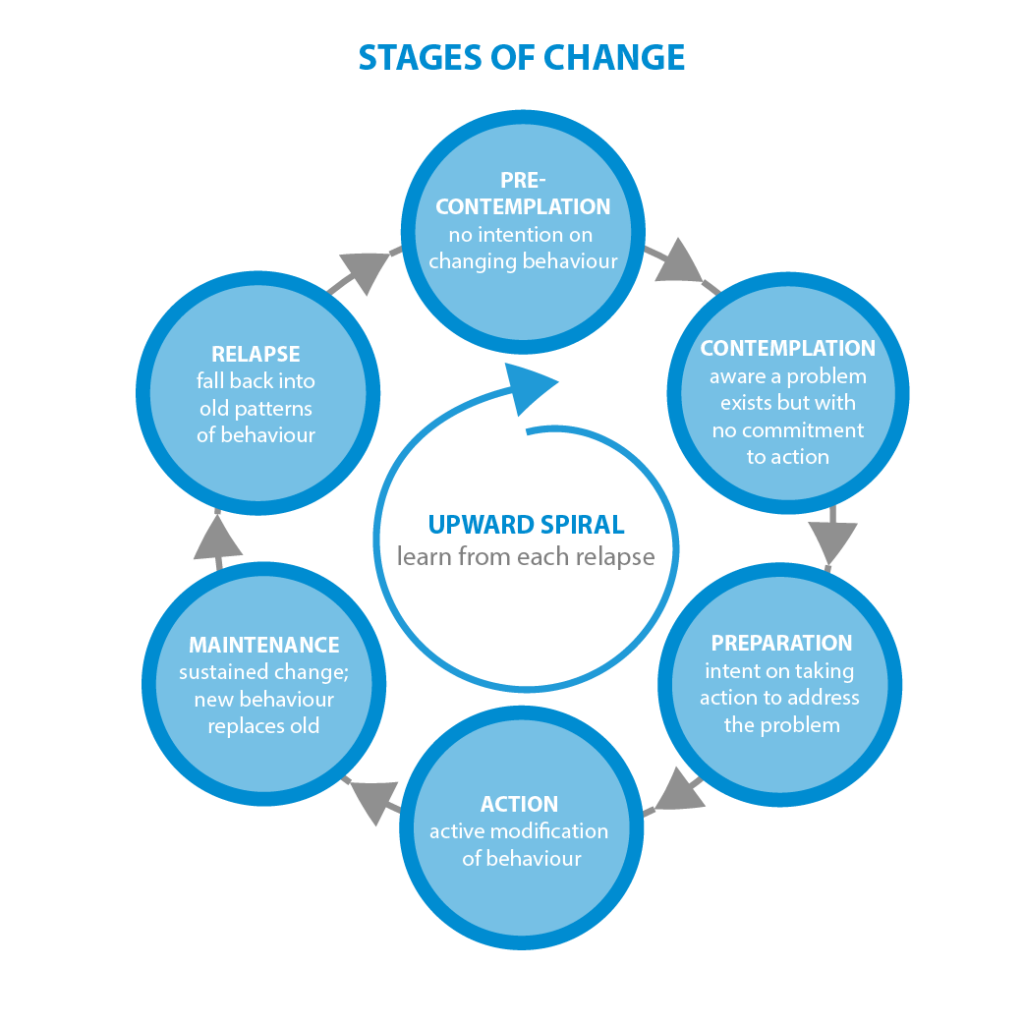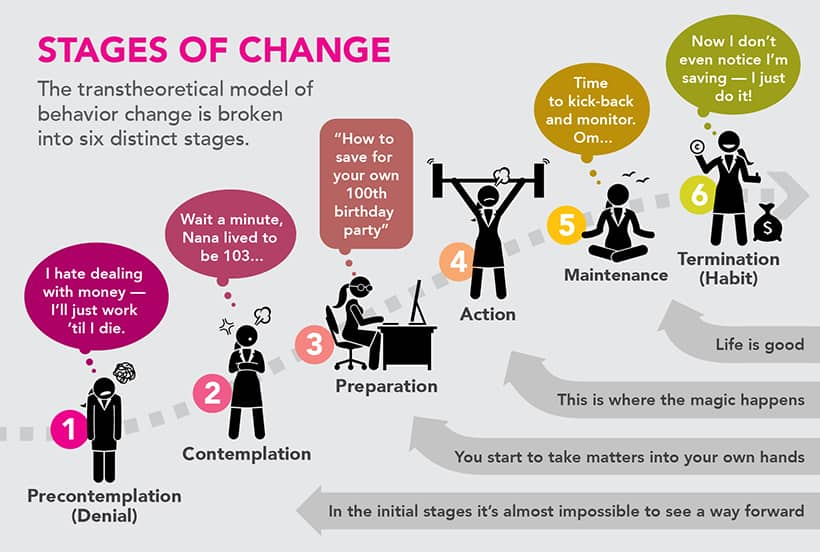Stages Of Change
Stages Of Change - Getting ready to change, perhaps setting a quit date. The six stages of gibbs' reflective cycle. This model is cyclic and has six principal elements: By illustrating the stages of change in a cycle, burrowes and needs imply. In this element of the cycle, you recount what you are reflecting upon,. Everette rogers’s theory is a. Change agents are the forces for change and must overcome the restraining forces to make the change successful. Prochaska et al 1992) is important in describing the process of change. The change agent ensures that the change is maintained in the final stage and relapse is avoided. Prochaska & diclement`s transtheoretical model (1984,1986;
The six stages of gibbs' reflective cycle. In this element of the cycle, you recount what you are reflecting upon,. Everette rogers’s theory is a. Prochaska & diclement`s transtheoretical model (1984,1986; Prochaska et al 1992) is important in describing the process of change. By illustrating the stages of change in a cycle, burrowes and needs imply. The change agent ensures that the change is maintained in the final stage and relapse is avoided. The model derived from their work on. Change agents are the forces for change and must overcome the restraining forces to make the change successful. This model is cyclic and has six principal elements:
Change agents are the forces for change and must overcome the restraining forces to make the change successful. In this element of the cycle, you recount what you are reflecting upon,. Everette rogers’s theory is a. By illustrating the stages of change in a cycle, burrowes and needs imply. The model derived from their work on. Prochaska & diclement`s transtheoretical model (1984,1986; The six stages of gibbs' reflective cycle. Getting ready to change, perhaps setting a quit date. Prochaska et al 1992) is important in describing the process of change. This model is cyclic and has six principal elements:
Reclaiming Life Meet on the Same Stage (Stages of Change and Pain
Prochaska & diclement`s transtheoretical model (1984,1986; The six stages of gibbs' reflective cycle. This model is cyclic and has six principal elements: Prochaska et al 1992) is important in describing the process of change. Everette rogers’s theory is a.
658 best images about Coaching, counseling, communicating inspiration
Prochaska et al 1992) is important in describing the process of change. Change agents are the forces for change and must overcome the restraining forces to make the change successful. Getting ready to change, perhaps setting a quit date. The change agent ensures that the change is maintained in the final stage and relapse is avoided. In this element of.
The Five Stages of Change the relationship blog
Prochaska et al 1992) is important in describing the process of change. The model derived from their work on. This model is cyclic and has six principal elements: Getting ready to change, perhaps setting a quit date. By illustrating the stages of change in a cycle, burrowes and needs imply.
How to Know if You’re Ready for Therapy Stages of Change
Change agents are the forces for change and must overcome the restraining forces to make the change successful. The change agent ensures that the change is maintained in the final stage and relapse is avoided. In this element of the cycle, you recount what you are reflecting upon,. Prochaska et al 1992) is important in describing the process of change..
By illustrating the stages of change in a cycle, burrowes and needs imply. Prochaska et al 1992) is important in describing the process of change. Everette rogers’s theory is a. Change agents are the forces for change and must overcome the restraining forces to make the change successful. In this element of the cycle, you recount what you are reflecting.
Stages Of Change Examples Pdf
The model derived from their work on. Change agents are the forces for change and must overcome the restraining forces to make the change successful. By illustrating the stages of change in a cycle, burrowes and needs imply. Prochaska et al 1992) is important in describing the process of change. In this element of the cycle, you recount what you.
Describe the Stages of Change in Adopting a Healthy Lifestyle
The model derived from their work on. In this element of the cycle, you recount what you are reflecting upon,. The change agent ensures that the change is maintained in the final stage and relapse is avoided. Change agents are the forces for change and must overcome the restraining forces to make the change successful. This model is cyclic and.
The Power of Change A Guide to Navigating the Stages of Addiction
In this element of the cycle, you recount what you are reflecting upon,. The change agent ensures that the change is maintained in the final stage and relapse is avoided. By illustrating the stages of change in a cycle, burrowes and needs imply. The six stages of gibbs' reflective cycle. The model derived from their work on.
Stages of Change
Prochaska & diclement`s transtheoretical model (1984,1986; In this element of the cycle, you recount what you are reflecting upon,. Change agents are the forces for change and must overcome the restraining forces to make the change successful. Everette rogers’s theory is a. The change agent ensures that the change is maintained in the final stage and relapse is avoided.
Making the Change Toward Healthy Behavior Studio SWEAT onDemand
The six stages of gibbs' reflective cycle. Change agents are the forces for change and must overcome the restraining forces to make the change successful. Prochaska et al 1992) is important in describing the process of change. Getting ready to change, perhaps setting a quit date. The change agent ensures that the change is maintained in the final stage and.
Prochaska Et Al 1992) Is Important In Describing The Process Of Change.
Everette rogers’s theory is a. The change agent ensures that the change is maintained in the final stage and relapse is avoided. This model is cyclic and has six principal elements: By illustrating the stages of change in a cycle, burrowes and needs imply.
The Model Derived From Their Work On.
Prochaska & diclement`s transtheoretical model (1984,1986; In this element of the cycle, you recount what you are reflecting upon,. Change agents are the forces for change and must overcome the restraining forces to make the change successful. Getting ready to change, perhaps setting a quit date.
